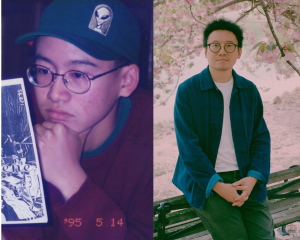True Crime: The fascination with murder and violence
Shattering the fascination of true crime; investigating the attention grabbing aspects
May 3, 2019
A shiny silver blade catches the viewer’s eyes as he sees the metal weapon drenched in crimson liquid. The liquid now spills everywhere, staining everything with a distinct dark red hue. A thrill of excitement surges through the viewer as he anxiously waits to see what comes next on his favorite show.
This scene is typical to true crime, a genre of entertainment that tells the stories of real criminals, especially those who have committed murder. TV shows such as “Conversations with a Killer: The Ted Bundy Tapes” take viewers into the mind of a murderer. In podcasts like My Favorite Murder, speakers share their favorite tales of homicide.
“True crime interests me because Hollywood tends to sensationalize killing, but some true crime genres are even more gruesome,” said math teacher Michele Quindipan. “It’s hard to believe that such crimes really happened.”
Many factors play into society’s fascination with true crime. According to a study by the University of California, Berkeley, people’s fascination with good versus evil contributes to the allure of true crime. The desire to gain insight into psychology of evil and the behavior of criminals is a motivating factor for viewers.
“What makes [true crime] so interesting is that people can’t imagine these scenarios,” said senior and Forensics Science Club President Rita Chen. “I am surprised by the endings when they ‘catch the culprit’ because the culprit tends to be someone we wouldn’t expect, and it’s fun to watch how [detectives] solve the puzzle.”
Due to the heinous nature of serial killer murder sprees, they are especially fascinating for audiences. According to Time, witnessing graphic scenes causes the release of adrenaline in the brain, a hormone that produces stimulating and addicting effects. Viewers are also drawn to watching true crime because it triggers fear, as they are able to experience horror and fear in a safe environment where the threat cannot possibly reach them. According to Dr. Katherine Ramsland, a professor of forensic psychology at DeSales University, people watch terrible programs for reassurance. People are simultaneously fascinated and afraid of crime, so they listen to these stories for a sense of preparedness, as this sense of preparedness helps people feel safer.
“I want to know if a murderer is suffering from mental illness, or if he or she is murdering for hate for someone,” said junior and Forensic Science Treasurer Tanav Ohal. “I really want to know murderers’ background and why they murder, and think about their motive a lot.”
As true crime continues to gain popularity, the nature of the shows, whether they focus on the evil in human nature, fear or empathy, tends to grab the attention of many: viewers crave the excitement and adrenaline rush from watching true crime. Whether it be purely for entertainment or for gaining knowledge, consuming true crime content is an interest deeply rooted in human psychology.






























































